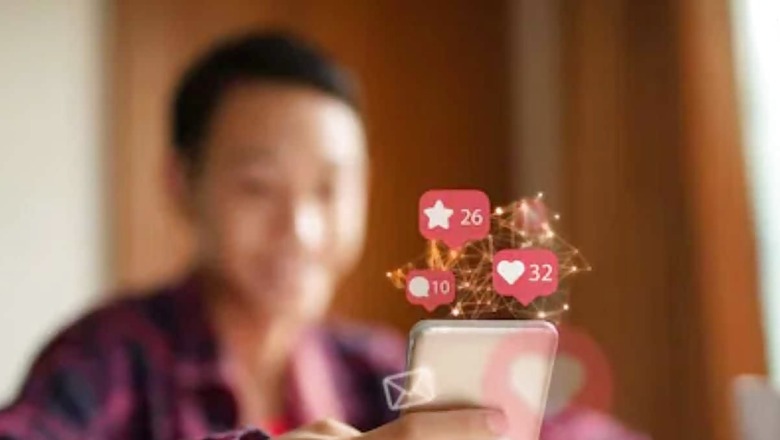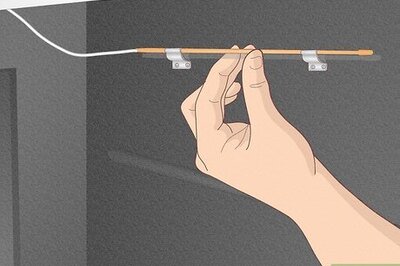
views
Most of our day starts with social media these days, whether it’s Instagram, Facebook, or WhatsApp. Everything comes to us through social media, be it office messaging, birthday wishes, photos from an event, or schoolwork from the kids. Social media has become so ingrained in our lives that it sometimes feels as though life would be incomplete without it. Because of this, it’s getting harder to live modern life without social media. When social media begins to encroach on children’s lives in addition to adults, something is seriously wrong. Social media is currently a topic of conversation, regarding how to protect kids from its dangers and whether or not to start warning them off early. Dr Vivek Murthy, the US Surgeon General, said in an interview that preventing kids from using social media would preserve their youth. He claimed that children’s mental health is suffering as a result. Social media apps must come with warnings, much like cigarettes and alcohol do.
Children who use social media for more than three hours a day are more likely to experience depression, according to 2019 American Medical Association research. Kids are using social media for five hours a day, according to a Gallup poll. Adults are utilising social media to such a degree that they are visible online around the clock, in addition to youngsters. A Pew Research Centre survey estimates that 378 crore people worldwide used social media in 2021. 84% of these users were in the age range of 18 to 29.
Psychiatrist Priyanka Srivastava thinks that similar to alcohol and tobacco, social media addiction is becoming more common. When they use it, they feel good. This is because using social media causes their bodies to emit the pleasurable hormone dopamine, which keeps people glued to this platform.
Psychiatrist Dr Rajiv Mehta of Sir Ganga Ram Hospital in Delhi claims that social media use has turned into people’s “me time.” For them, it has a “feel good factor,” yet this sensation itself is removing them from reality. They are moving away from their friends and family and have begun to view the virtual world as their own. They are unintentionally falling prey to loneliness. Because social media has such a strong hold on them, they struggle to interact with others, don’t communicate their ideas to others, lack confidence, and are more susceptible to anxiety and despair.
Warning and alerting is needed, according to Dr Rajiv Mehta. People will be more aware of how much to use social media and how to maintain good mental health if businesses issue cautions before users launch the applications. It is safe to use social media for 2.5 to 3 hours, according to numerous research. Because people frequently are unaware of how much time they have spent on social media, they will also begin to avoid it if the alert begins to flash on their phone after three hours.
Every household should establish a rule prohibiting the use of mobile phones for three hours in the morning, as well as during breakfast, lunch, and dinner. Mobile phones should be kept out of the bedroom on Sundays, when the whole family is present. It should not be permitted to enter the bedroom at all. Refrain from sharing images of your joyful private moments on social media. Through self-improvement, one can avoid the negative consequences of social media.




















Comments
0 comment